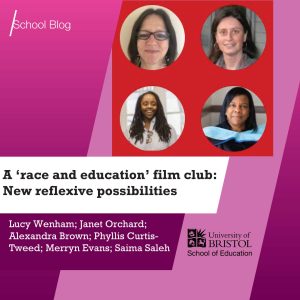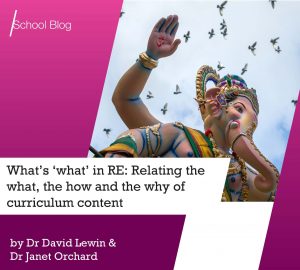 Blog by Lucy Wenham, Senior Lecturer in Education at University of Bristol Janet Orchard, Associate Professor at University of Bristol Alexandra Brown, Philosophy and Religious Studies Secondary School Teacher Phyllis Curtis-Tweed, Vice President of Academic and Student Affairs at Bermuda College Merryn Evans, Head of Religion and Worldviews at Redland Green School Saima Saleh, Head of RE/Religion and Worldviews at Ravenscote Junior School
Blog by Lucy Wenham, Senior Lecturer in Education at University of Bristol Janet Orchard, Associate Professor at University of Bristol Alexandra Brown, Philosophy and Religious Studies Secondary School Teacher Phyllis Curtis-Tweed, Vice President of Academic and Student Affairs at Bermuda College Merryn Evans, Head of Religion and Worldviews at Redland Green School Saima Saleh, Head of RE/Religion and Worldviews at Ravenscote Junior School
In England, as with so many settings around the globe, researchers have long-debated how concepts of racism interplay with education, whether at the systemic or classroom level (see for example Gillborn, 1995). Race and purported levels of racism remain a contentious issue, causing governments to commission reports and researchers to scrutinise their limitations and implications of racism for education (Tikly, 2022). These issues are as pertinent as ever, perhaps even more so, given heightened xenophobia following the Brexit campaigns, and schools accused by government ministers of ignoring their duty to be politically impartial by supporting the ‘Black Lives Matter’ (BLM) movement. Teachers sit in the thick of it.

 Blog post by
Blog post by